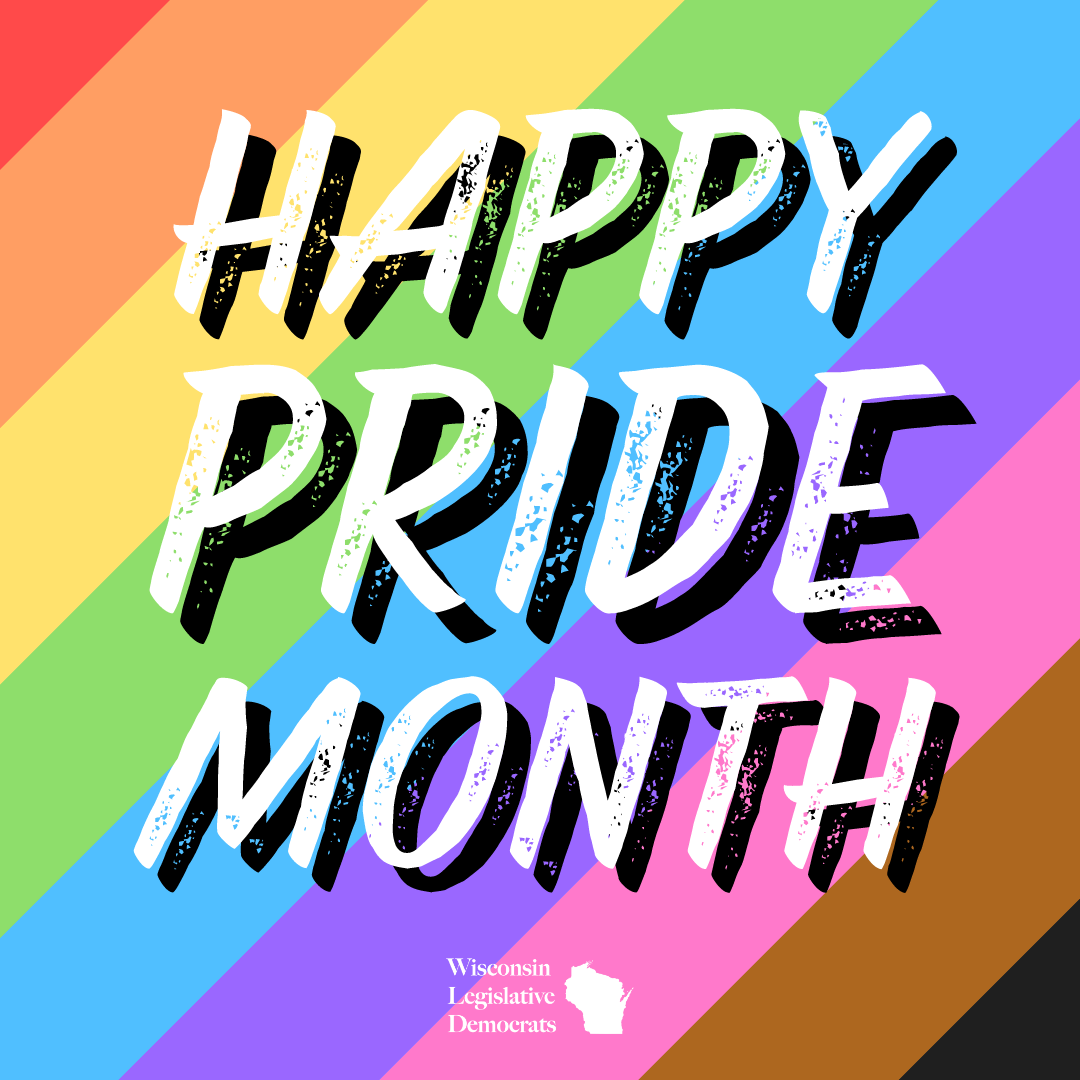Celebrate Pride Month
By: Senator Jeff Smith
Martin Luther King, Jr. reminded us that “the arc of the moral universe is long, but it bends toward justice.” Over the course of my life, I can look back and see how true that statement is. History shows us the very tangible progress we have made, even in recent years, but it’s important to remember that we didn’t come this far by chance alone.
During Pride Month, this June and beyond, we are reminded of the importance of standing together to support and uplift our LGBTQ+ community. This month is a time to honor the progress we’ve made, acknowledge the challenges that remain and commit ourselves to the ongoing fight for equality and inclusivity. For Wisconsin, Pride Month is not just a celebration, it’s a time to remember our shared values of diversity, acceptance and human dignity, especially in the face of the challenges we saw during the last legislative session.
When police raided the Stonewall Inn in Greenwich Village the night of June 28, 1969 and began hauling patrons out to paddy wagons, it sparked an uprising. Police were caught off-guard; they had not met so much resistance in the past. But these citizens who were only able to be open about who they were in places like the Stonewall Inn had enough. Protests and violent clashes lasted for 6 days. It was this tipping point that sparked a groundswell of activism in the gay rights movement across the nation and the world.

Wisconsin has its own proud history of LGBTQ+ activism. Eight years before Stonewall in 1961, a group of men was bent on harassing patrons of the Black Nite Bar in Milwaukee. They were met with resistance and successfully kicked out of the bar. This incident has since been dubbed the “Black Nite Brawl” and “Milwaukee’s Stonewall.”
While Stonewall has been celebrated since 1969 as a turning point, there is still so much more to do. It is often said that it is our differences that make us a great nation. Accepting that we are all individuals, with our own individual backgrounds and desires, we can embrace that variety and build a vibrant and welcoming society.
Wisconsin has been a leader in LGBTQ+ rights since 1982, when we became the first state to pass a law prohibiting employment or housing discrimination based on sexual orientation (although it’s important to note that Wisconsin still does not have a law preventing discrimination based on sexual identity). It would be nine years before any other state would pass such protections. This groundbreaking legislation was a beacon of hope and a model for other states to follow. Yet, despite these strides, the LGBTQ+ community continues to face significant obstacles. From healthcare disparities to discrimination in various aspects of daily life like housing and employment.
One of the most pressing issues facing our LGBTQ+ community is the fight for comprehensive non-discrimination protections. There is still a need for robust legal safeguards that protect individuals based on gender identity and expression. Every Wisconsinite, regardless of their sexual orientation or gender identity, deserves to live free from discrimination. It is our responsibility as policymakers to ensure that these protections are enshrined in our laws.
Healthcare access is another critical area where we must focus our efforts. Studies have shown that LGBTQ+ individuals often face barriers to accessing quality healthcare, leading to disparities in physical and mental health outcomes. Transgender individuals, in particular, experience high rates of discrimination and inadequate care. By promoting inclusive healthcare policies and supporting providers who offer affirming care, we can help bridge these gaps and ensure that everyone in our community receives the care they deserve.
This Pride Month, I encourage everyone to join in the celebrations. Attend local Pride events, support LGBTQ+ businesses and engage in conversations about the importance of equality and inclusion. Let’s use this month as an opportunity to reflect on the progress we have made and recommit ourselves to the work that still needs to be done, especially in the upcoming legislative session in January.
